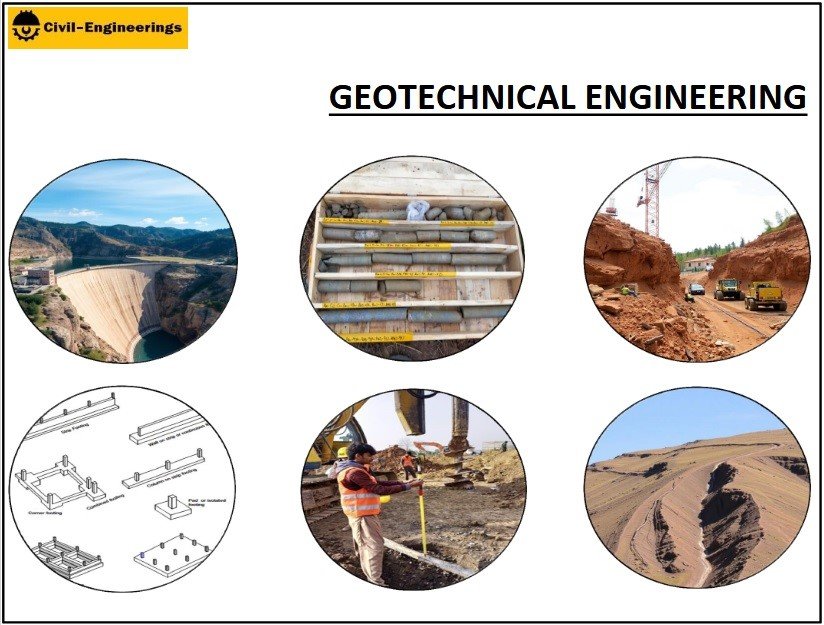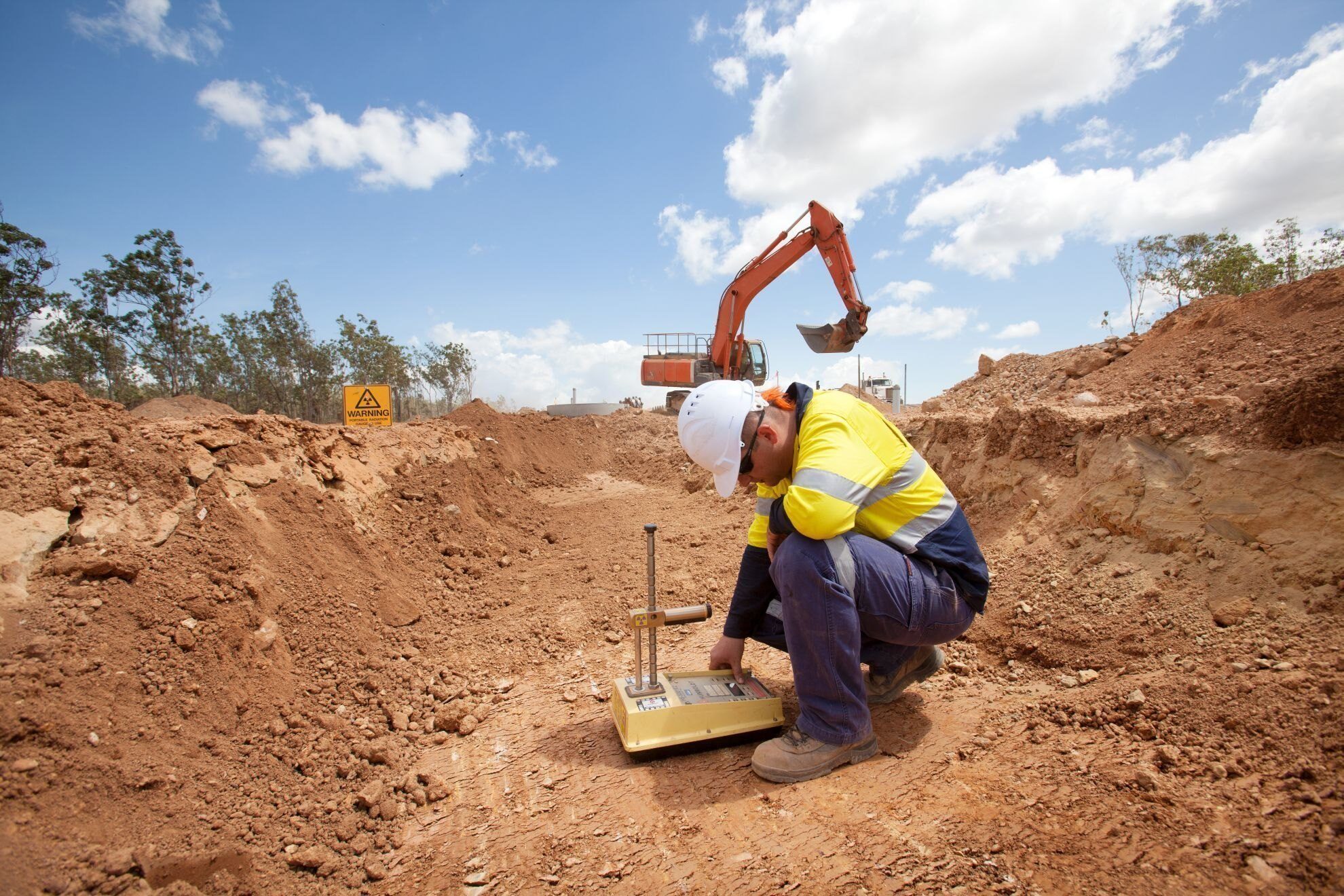Excitement About Geotechnical Engineering For Construction Projects
Table of ContentsExcitement About Geotechnical Engineering For Construction ProjectsThe Of Geotechnical Engineering For Construction ProjectsGeotechnical Engineering For Construction Projects - An OverviewGeotechnical Engineering For Construction Projects - QuestionsThe 45-Second Trick For Geotechnical Engineering For Construction Projects
During the examination, it is essential to pierce at the required deepness and the needed number of holes as per the referral of the Canadian Foundation Design standard. Often, the proprietor could save some Geotechnical Examination expense but wind up spending greater than the anticipated throughout the construction price.The obligations of the geotechnical consultant include giving product testing for building support. Geotechnical Engineering for Construction Projects. Geotechnical engineers evaluate all the field examination reports to make sure that construction is going on according to the project requirements. Throughout building, a confirmatory test for dirt compaction is done on-site to make sure that no future negotiation occurs
After the concrete is poured -7 days and 28 days- tests are carried out on concrete examples gathered from the site to guarantee that the concrete put satisfies the design criterion. Asphalt core is taken after the Asphalt is laid and compacted to verify that it fulfills the style criterion. All research laboratory test reports are analysed by the Geotechnical Designer to ensure that it satisfies the project requirements.
The Definitive Guide for Geotechnical Engineering For Construction Projects

Geotechnical design plays a crucial duty in making sure the stability of building and construction jobs. Geotechnical engineering is an essential branch of civil engineering that concentrates on comprehending the behaviour of earth products, such as dirt and rock.

For a trusted foundation and a smooth construction procedure, depend give the expertise you need. Call to obtain professional advice and geotechnical solutions customized to your following task.
The 25-Second Trick For Geotechnical Engineering For Construction Projects
When beginning on a land growth project, comprehending the ground underneath your feet is as essential as the frameworks you prepare to build above it. Our Geotechnical Design team analyse the ground, guaranteeing it is ideal for the proposed development while supplying you with the information called for to satisfy your task objectives.
Geotechnical Engineering takes a look at the formation of the ground, as it is the structure blocks for all jobs. Where structures require to be designed with respect to the ground problems; ground conditions (e.g., soft ground) may need enhancing depending upon the size of the designated structure. Before building, you require to understand about the groundwater, soil structure, and liquefaction probability of your land.
For sites that are not linked on the neighborhood authority framework added site investigations would be required to supply technological inputs for on-site stormwater and wastewater. We have experienced Geotechnical Engineers based in each workplace, supporting your geotechnical needs nationwide. Connect to us More hints to discuss how we can sustain your following project.
These reports are customized to meet the certain requirements of a project and include design criteria and advice for the building and construction of a series of synthetic frameworks. As supplying working as a consultant services covering areas such as incline security and load-bearing capabilities for various materials, these designers take on research and advancement activities to boost methodologies, equipment, materials understanding and evaluation covering whole lifecycles.
The Ultimate Guide To Geotechnical Engineering For Construction Projects

Prices of pay generally boost as your expertise and abilities expand, with standards directing to a graduate starting income of between 18,000 and 28,000 per year in the UK. This rises to 26,000 to 36,000 with a couple of years of experience and then getting to 40,000 to 60,000+ for elderly, chartered or master engineers.
With the appropriate application it is feasible to master the career and gain access to a tough yet gratifying and important occupation. A geologist would need to retrain to end up being a geotechnical designer, although there is lots of cross-over between both professions, which could make this simpler - Geotechnical Engineering for Construction Projects. Geologists require to have an understanding of soils, rocks and other materials from a clinical point of view, while geotechnical engineers story their understanding of matters such as dirt and rock auto mechanic, geophysics and hydrology and use them to design and ecological projects
When beginning out, these engineers will certainly have a tendency to deal with less intricate jobs, developing knowledge and experience ready for even more tough job later on. Geotechnical designers often tend to specialise in details locations as they expand in experience, concentrating on certain frameworks such as trains, roadways or water. These designers also collaborate with renewable resource, offshore and onshore oil and gas, nuclear power, and more.
The Facts About Geotechnical Engineering For Construction Projects Uncovered
The time taken to come to be a geotechnical designer depends on where you are based, where you study and what level of education and learning you desire to see acquire prior to going into the work environment. Generally-speaking it takes 3-4 years to reach the fundamental needs to start a profession as a geotechnical engineer.
These procedures make it possible for specialists to analyze a host of dirt technicians consisting of weight, porosity, void-to-solid bit ratio, permeability, compressibility, maximum shear stamina, birthing ability and deformations. If the structure needs a deep structure, designers will utilize a cone penetration examination to approximate the amount of skin and end bearing resistance in the subsurface.
When evaluating a slope's equilibrium of shear stress and shear strength, or its ability to endure and undergo activity, rotational slides and translational slides are generally considered. Rotational slides fail along a bent surface area, with translational slides happening on a planar surface. A professional's goal is to identify the conditions at which an incline failure might occur.
Frequently, searchings for suggest that a website's dirt ought to be treated to improve its shear strength, rigidity and permeability prior to layout and construction. When it comes time to outline structure plans, experts are increasingly concentrated on sustainability, more particularly how to reduce a structure's carbon footprint. One technique has been to replace 20 percent of a foundation's concrete with fly ash, a waste item from coal fire power plants.
Comments on “3 Easy Facts About Geotechnical Engineering For Construction Projects Described”